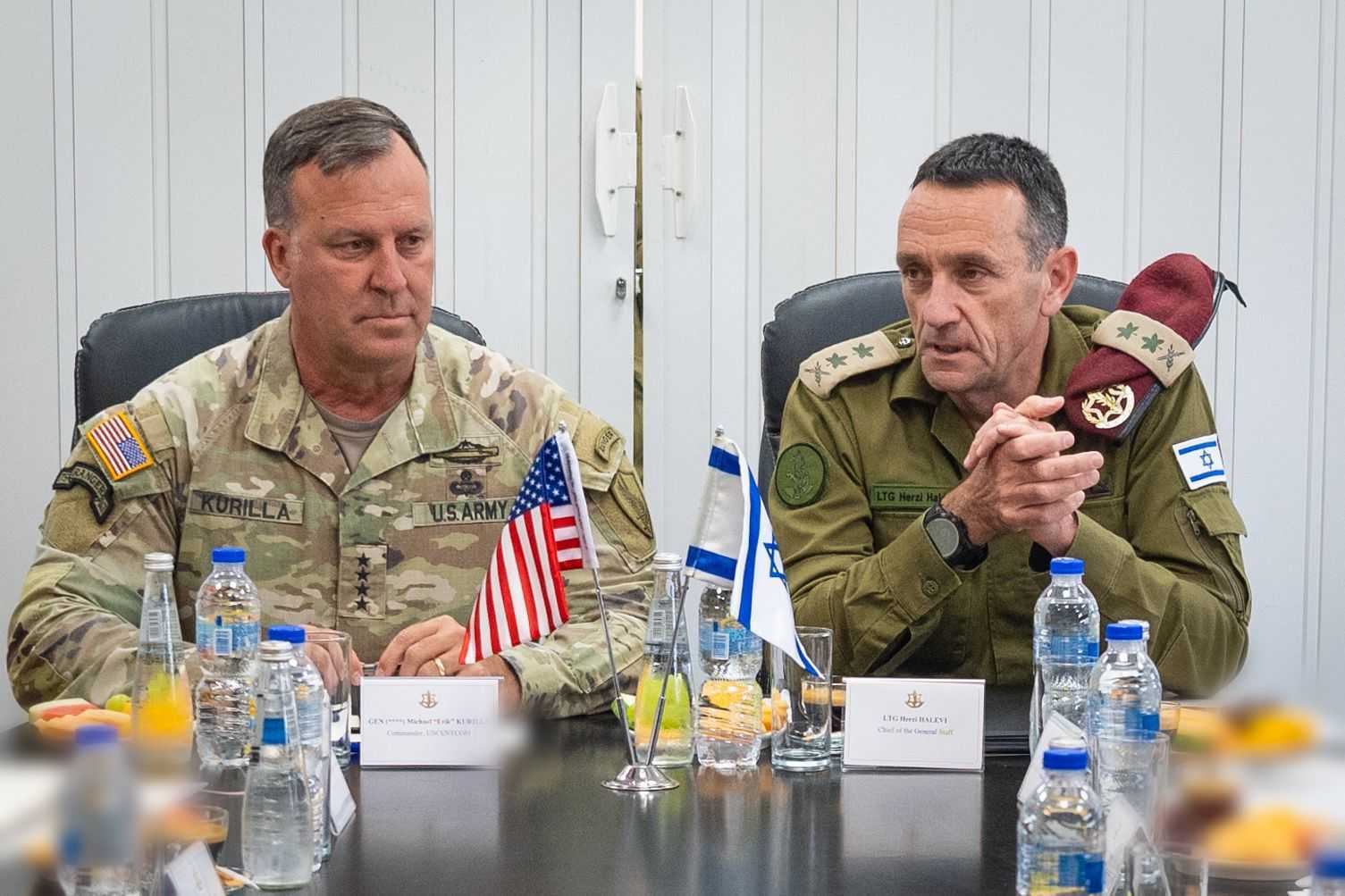



Israel Defense Forces Chief of Staff Herzi Halevi met with senior generals from several Arab countries in Bahrain, under the auspices of US CENTCOM, the according to a Wednesday report.
The Monday meeting, which has not been officially announced, was organized by the US Central Command and is being kept quiet due to regional sensitivity, Axios reported, citing two sources with knowledge of the low-profile gathering.
The meeting came with Israel eight months into a war against Palestinian terror group Hamas that has drawn sharp condemnation from Arab states
Halevi met the top military officials from Bahrain, United Arab Emirates, Saudi Arabia, Jordan, and Egypt in Manama on Monday, according to the report, as part of ongoing military cooperation with Arab neighbors.
US General Michael “Erik” Kurilla, the commander of CENTCOM, participated in the meeting, the report said.
The IDF and CENTCOM declined to comment on the report.
Kurilla was in Israel over the weekend, and according to the IDF he and Halevi held an assessment and discussed “recent regional challenges, and the strengthening of the strategic partnership in the region against the Iranian threat and Iran’s proxies in the region.”
“The developments on the northern border and the war in Gaza were also discussed,” the military said.
The US has been working for years to forge military cooperation between Israel and Sunni Arab states that share an alignment against Iran.
With a formal military alliance impossible under the existing political situation, the US instead has worked to build an informal regional air defense cooperation. The Abraham Accords, which normalized ties between Israel and the UAE as well as Bahrain in 2020, gave a boost to the plans. In another significant move, Israel in 2021 was moved from the European theater to the US Central Command.
A taste of what that alliance could achieve came in April when the US coordinated regional efforts to thwart a barrage of missiles and drones that Iran fired at Israel. Alongside the US, the UK, France, and Jordan, some Gulf states — among them Saudi Arabia — also provided intelligence that helped with interceptions.
The volley of over 300 missiles and drones was almost entirely stopped and the IDF, backed by the US and other allies, was able to confirm that some 99 percent of the incoming threats were downed, and the handful that made it through caused only minor damage. A 7-year-old Bedouin girl was seriously injured by falling shrapnel.
The war in Gaza erupted on October 7, when Hamas led a massive cross-border attack on Israel in which the invading terrorists killed 1,200 people and abducted 251. Israel responded with a military offensive to destroy Hamas and free the hostages, of whom 120 remain in captivity, dozens them thought to be dead.
The day after the Hamas attack, Iran’s proxy Hezbollah began attacking along the border with Lebanon, while also firing rockets at northern towns and communities. Israel has responded with strikes against Hezbollah targets in Lebanon and, allegedly, also airstrikes on related infrastructure in Syria.
The escalating violence led to the Iranian direct attack on Israel and has raised concerns that it could explode into a major regional war alongside the fighting in Gaza. Israel allegedly responded to Iran’s attack by destroying an Iranian air defense system close to one of the Islamic Republic’s nuclear sites.

